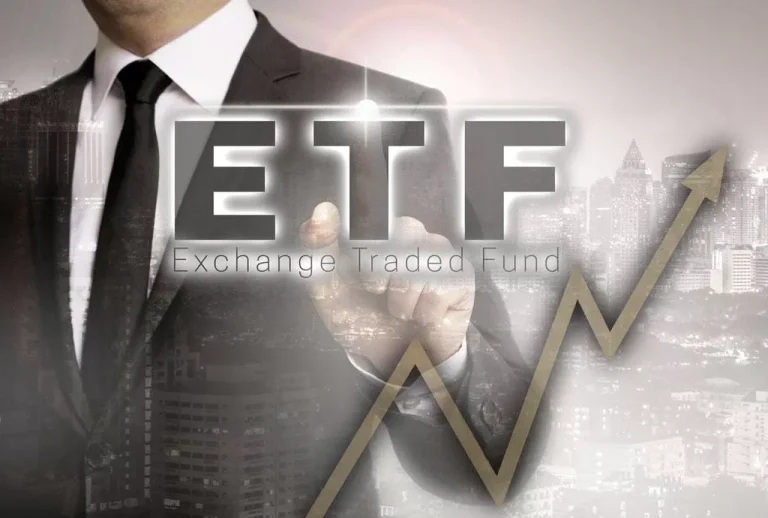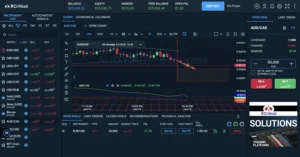Choosing a suitable Exchange Traded Fund (ETF) liquidity provider stands out among the many elements influencing an investor’s success. In this article, we will clarify the concept of ETF liquidity, explore the aspects that affect it, and underscore the importance of choosing an appropriate provider. By the end of this article, you’ll be better equipped to provide excellent service to your clients and effectively manage the dynamics of ETF trading.
What is an ETF liquidity provider?
It is a crucial player in the ETF market, also known as a market maker. ETF liquidity provider, often brokerage companies, ensures the markets run like a well-oiled machine. They serve as the market’s lifeblood by supplying the essential liquidity, made possible by ongoing dedication to purchasing (the bid) and repurchasing (the ask) shares at publicly posted prices. They do this to ensure that trading runs smoothly and allow investors to complete trades with the least price effect. A decrease in transaction fees is the mechanism’s outcome, which is advantageous for all market players.


Turnkey Brokerage Solution For Your Business
Get the most profitable fully licensed fx/crypto brokerage software or ready-to-operate business in 48 hours. Best-in-class web & mobile trading platforms, sales-driven CRM, full integration with MT4/5, and 150+ payment providers.
Are shares of ETFs liquid?
ETF shares are assumed as highly liquid assets. This is one of the key features making them an attractive investment option. The liquidity of ETF shares is a significant characteristic setting them apart from other investment types, like mutual funds. Unlike mutual funds, ETF shares are traded throughout the day the same way stocks are.
Two interconnected elements primarily drive the liquidity of ETF shares:
- The liquidity of the underlying assets
- The role of the ETF liquidity provider
Let’s unpack these further.
Essentially, the ease with which the assets are bought or sold impacts the ETF shares. If these assets are highly liquid and readily traded, the exchange traded fund shares naturally inherit the liquidity.
Equally important is the role played by the ETF liquidity provider. These key players bolster liquidity by consistently standing ready to buy and sell shares. Their continuous participation ensures that ETF trading remains fluid and investors execute trades with minimal impact on the market maker price.

Factors that influence ETF liquidity
An ETF’s liquidity, which impacts an investor’s potential returns, is influenced by multiple factors. Understanding these factors is essential for investors seeking to optimize their investment strategy and reduce risks.
- ETF composition: ETFs of highly liquid assets like large-cap stocks or government bonds typically have higher liquidity. Conversely, those composed of less liquid assets, such as exotic commodities or small-cap stocks, tend to be less liquid.
- Trading volume: High trading volumes usually signal a healthier market for the ETF, enhancing its liquidity.
- Market conditions: ETF liquidity is affected during volatile periods as investors prefer safer investments.
- Market maker Activity: Active market makers boost an ETF’s liquidity by participating in trading.
- ETF structure: The structure, whether physically-backed or synthetic, also influences its liquidity.
Understanding these factors, particularly the ETF composition, is crucial as they impact the ease of transactions and potential returns from ETF investments.
Why is ETF liquidity important?
Liquidity allows investors to easily enter and exit positions without affecting the price. It is beneficial for institutional investors who deal with large volumes of shares and require such a level of liquidity to conduct trades smoothly. Higher rate is often associated with lower transaction costs due to narrower bid-ask spreads in ETFs. This aspect further accentuates the importance of exchange traded funds liquidity for all market participants.
How to choose a liquidity provider?
Making the right choice for an ETF liquidity provider is a vital step on the road to successful investments. Such a decision impacts the effectiveness and success of trades. To direct you through this crucial process, we’ve outlined some key factors to keep in mind:
Experience and reputation
Opt for a provider with a trustworthy track record and a strong reputation in the market. The provider should showcase extensive experience handling diverse ETFs and have proven their mettle in varying demand conditions.
Trading volume
Providers with a high trading volume often offer better liquidity, an excellent advantage for investors. This translates into tighter bid-ask spreads and reduced transaction costs, making your ETF trading journey more cost-effective.
Client Service
The importance of high-quality client service cannot be overstated. Your chosen provider should deliver transparent reporting, efficient trade execution, and should be prompt in responding to client queries.
Technological capabilities
As we step further into the digital age, the technological prowess of your provider gains heightened importance. Providers with advanced algorithms and robust platforms often deliver superior liquidity and smoother trading experiences.
In conclusion, a comprehensive understanding of ETF liquidity and the role of providers is crucial when dealing with investment instruments such as exchange trading funds. By carefully assessing the abovementioned factors, you will be able to make a better decision when choosing an ETF liquidity provider.






